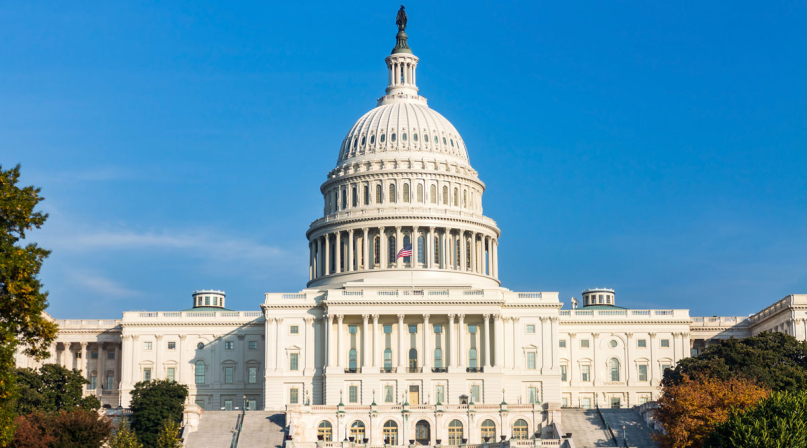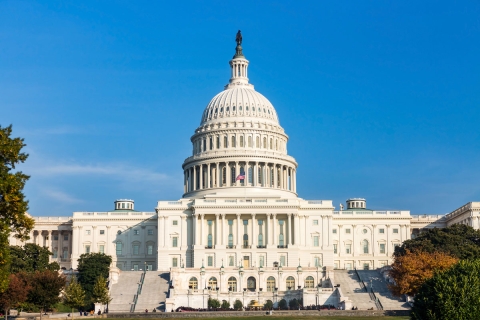U.S. House Passes Continuing Resolution to Fund the Government through December 11, 2020

Key Takeaways
Update: On September 30, the U.S. Senate passed the C.R. with a vote of 84-10 and the President signed into law, funding the government until December 11, 2020.
Update: On September 24, the U.S. Senate passed a motion to proceed on H.R. 8337 with a 93-2 vote. With this procedural hurdle cleared, a vote on passage should occur early next week, and is expected to succeed.
On September 22, 2020, the U.S. House of Representatives passed a continuing resolution (CR) to temporarily fund the government through December 11, 2020. The Continuing Appropriations Act, 2021 and Other Extensions Act (H.R. 8337) would extend spending at Fiscal Year 2020 (FY 20) levels for most programs (with certain exceptions) and reauthorize several programs scheduled to expire in the near future. The measure, which comes just nine days before the end of the fiscal year, passed with a 359-57 vote. The significant bipartisan support comes after a compromise to include additional trade relief to farmers (a key Republican priority) in exchange for additional funding for child nutrition programs (a key democratic priority). The Senate is expected to pass the measure on a bipartisan basis later this week; the White House has signaled that the President will sign it into law.
FUNDING ANOMALIES
While the H.R. 8337 would extend FY 20 funding levels for most programs, it includes certain exceptions, or “funding anomalies,” for programs to receive additional appropriations over the prior year. Of note for counties, the CR would:
- Provide $1.4 billion in direct loans and $50 million in guaranteed loans for the U.S. Department of Agriculture’s Rural Water and Wastewater Program--a $740.5 million increase over FY 20This program helps counties provide clean and reliable drinking water systems, sanitary sewage disposal, sanitary solid waste disposal, and storm water drainage to households and businesses.
- Provide an additional $8 billion for Child Nutrition Programs to meet increased program demand and operational costs due to the Coronavirus pandemic.
- Increase the threshold for projects that are either a freight rail or freight intermodal project, or an intermodal facility project that facilitates the efficient movement of freight, under the Infrastructure for Rebuilding America (INFRA) grant program from $500 million to $600 million for FY 21. The INFRA grant program provides competitive funding opportunities to counties directly through the U.S. Department of Transportation.
- Ensure the Census Bureau has flexibility to spend its appropriation at a higher rate if needed to complete the 2020 decennial census. Click here for more information on the importance of the decennial census to counties.
PROGRAM EXTENSIONS
Additionally, H.R. 8337 includes language to extend key expiring programs and administrative flexibilities for counties, including:
- Key Human Services Programs: The CR would extend both the Temporary Assistance for Needy Families (TANF) program and Child Care Entitlement to States (CCES) through December 11, 2020. With the extension, both programs would be able to make full first quarter payments to states, providing increased certainty for program operations. Counties administer the TANF program in eight states and the CCES program in eight states.
- Food Assistance Programs: H.R. 8337 would extend existing administrative waivers in the Supplemental Nutrition Assistance Program (SNAP), Special Supplemental Nutrition Program for Women, Infants, and Children (WIC) and the Child Nutrition Programs through September 31, 2021. This is a major win for counties, who have urged Congress to provide additional flexibility for state and county human services agencies for the duration of the pandemic to ensure the safety of caseworkers and ensure vulnerable county residents do not face barriers to accessing food assistance. The CR would also extend the Pandemic-EBT program—which Congress created under the CARES Act to provide SNAP benefits to children who receive free or reduced-price school meals and are experiencing school closures due to the COVID-19 pandemic—through September 31, 2021.
- The National Flood Insurance Program (NFIP): H.R. 8337 would extend NFIP through September 30, 2021. NFIP aims to reduce the impact of flooding on private and public structures by providing affordable insurance to property owners, and by encouraging communities to adopt and enforce floodplain management regulations. The program has operated under a series of short-term extensions since the expiration of the Biggert-Waters Flood Insurance Reform Act of 2012 in 2017. Counties support a long-term reauthorization of the NFIP to ensure its continuation, as we use funding administered through the program to develop mitigation plans to better prepare for future flooding and to ensure the safety of our residents.
- Key Public Health and Medicaid Programs. Under the stopgap measure, key public health programs for counties such as community health centers and the National Health Service Corps would be extended through December 11, 2020. Further, the measure would delay scheduled cuts to the Medicaid Disproportionate Share Hospital (DSH) payment program through December 11, 2020. These programs provide direct federal support to counties to deliver critical healthcare services to the medically indigent, underinsured and under-resourced individuals and communities.
- The Fixing America’s Surface Transportation (FAST) Act (P.L. 114-94): The CR would extend the FAST Act, the current law governing surface transportation programs, for one year through FY 21. The majority of the legislation is a clean extension of FAST Act programs that would continue funding highway, transit and rail programs at no less than FY 20 levels, with the exception of an increase for certain freight projects under the Infrastructure for Rebuilding America grant program. Other provisions include continued authorizations for programs important to counties, including extending through September 30, 2021 the following: the time a county has to use FY 17 and FY 18 Better Utilizing Investments to Leverage Development grant funds; the date by which the U.S. Department of Transportation has to make direct loans and loan guarantees to counties for economic development projects under the Railroad Rehabilitation and Improvement Financing program; and the authorization expiration date for the Appalachian Regional Commission. The extension also includes language to transfer funds from the Treasury’s general fund to transportation trust funds, including $13.6 billion to the Highway Trust Fund ($10.4 billion for highways; $3.2 billion for mass transit) and $14 billion to the Airport and Airway Trust Fund. View NACo’s letters to Congress requesting a one-year extension of the FAST Act absent a new, long-term reauthorization here, here and here.
While bipartisan agreement on H.R. 8337 signals that lawmakers will avert a government shutdown before the election, the measure omits provisions aimed at providing substantial COVID-19 relief. Congress will likely postpone work on regular appropriations until after the election, setting up a government funding fight for the lame-duck session.

Attachments
Related News

Counties search for footing amid federal workforce cuts
Staffing reductions in the federal land management agencies are upsetting the intergovernmental balance in public lands counties.

County Countdown – March 25, 2025
Every other week, NACo's County Countdown reviews top federal policy advocacy items with an eye towards counties and the intergovernmental partnership. This week features budget reconciliation, FY 2025 funding and more.

NACo Legal Advocacy: San Francisco v. Environmental Protection Agency (EPA)
San Francisco v. Environmental Protection Agency (EPA) has implications for the ability of county governments that own and operate wastewater treatment facilities to comply with National Pollutant Discharge Elimination System (NPDES) permit requirements.
